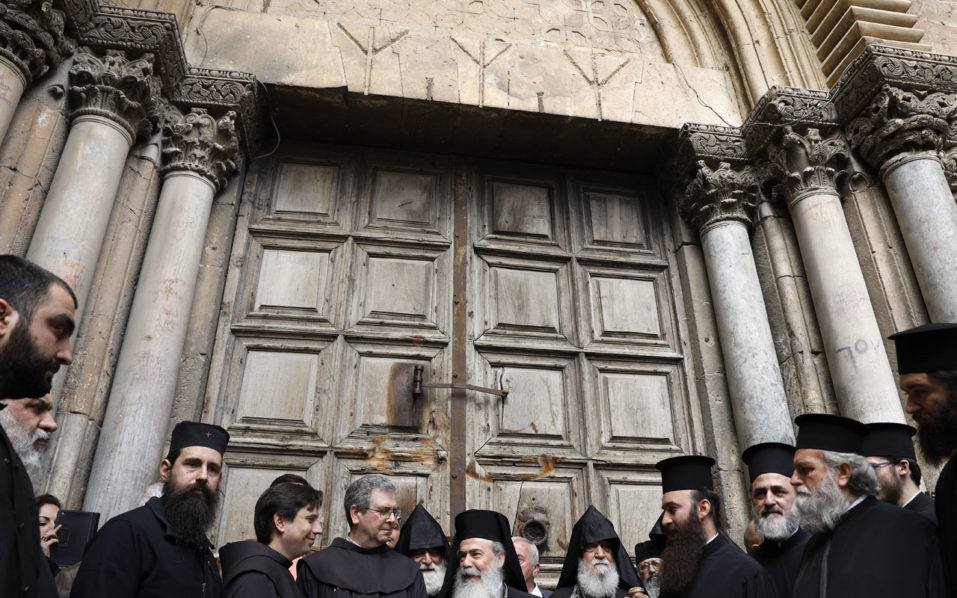
The church in Jerusalem built at the traditional site of Jesus’s burial remained closed for a third day Tuesday as Christian leaders protested against Israeli tax measures and a controversial proposed law.
Christian leaders closed the Church of the Holy Sepulchre on Sunday at noon in a rare move, leaving thousands of pilgrims and tourists seeking to visit what many see as the holiest site in Christianity locked outside.
Church officials say the church will be closed until further notice as they seek to pressure Israeli authorities to reverse their measures.
The church is built where Christians believe Jesus was crucified, buried and resurrected. Custody of it is shared by the Greek Orthodox, Armenian and Roman Catholic denominations.
Christian leaders are angry over attempts by Israeli authorities in Jerusalem to enforce tax collection on church property they consider commercial, saying exemptions only apply to places of worship or religious teaching.
They also say legislation being considered by Israel’s government would allow church property to be expropriated.
Jerusalem Mayor Nir Barkat says the city is due 650 million shekels ($186 million/152 million euros) in uncollected taxes on church properties.
He stresses the Church of the Holy Sepulchre and all other churches are exempt, with the changes only affecting establishments like “hotels, halls and businesses” owned by the churches.
A separate bill seeks to allay the fears of Israelis who live in homes on lands previously held by the Greek Orthodox Church and which were sold to private developers, according to the lawmaker proposing the legislation.
The bill would allow certain lands sold by the Greek Orthodox Church to be handed over to the state, which would then compensate those who bought it from the church.
[ad unit=2]



